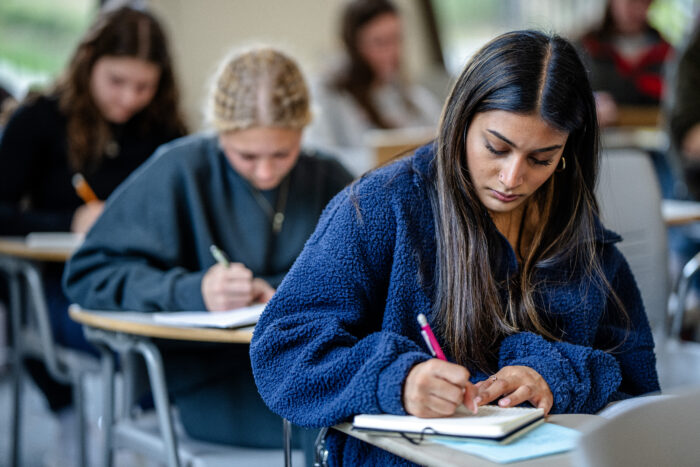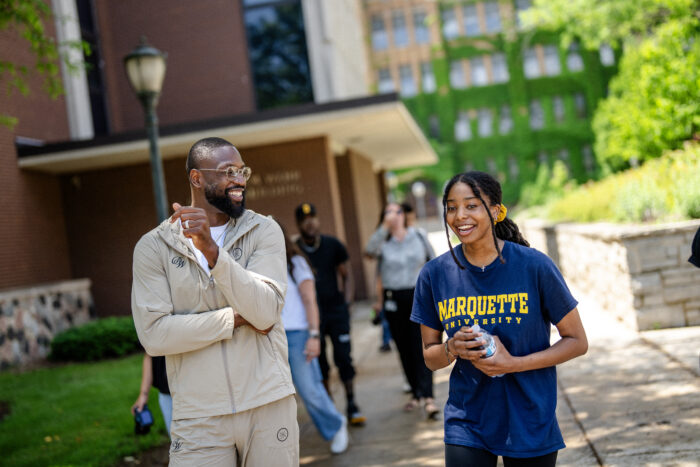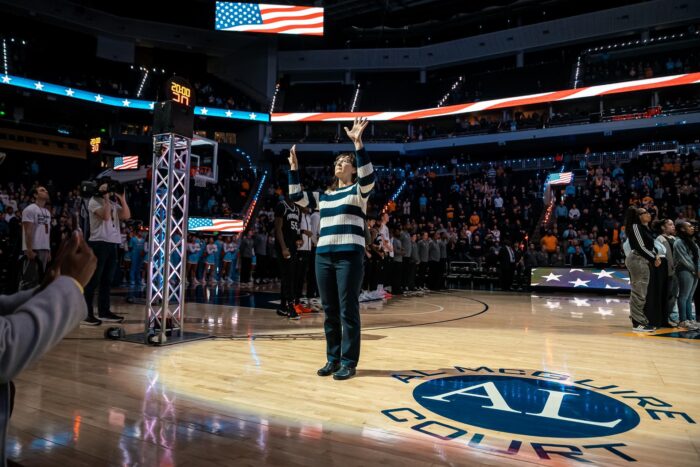This Q&A is part of the “Teaching Spotlight Series.” Hosted through the Center for Teaching and Learning, this interview series pays special attention to teaching as a profession and vocation at Marquette. All kinds of instructors and faculty will be profiled in this series. Graduate student instructors, new faculty, associate professors, adjunct or full-time participating faculty, staff who teach our students or part of a collaborative teaching core on campus: We want to shine a light on great things happening everywhere on campus!
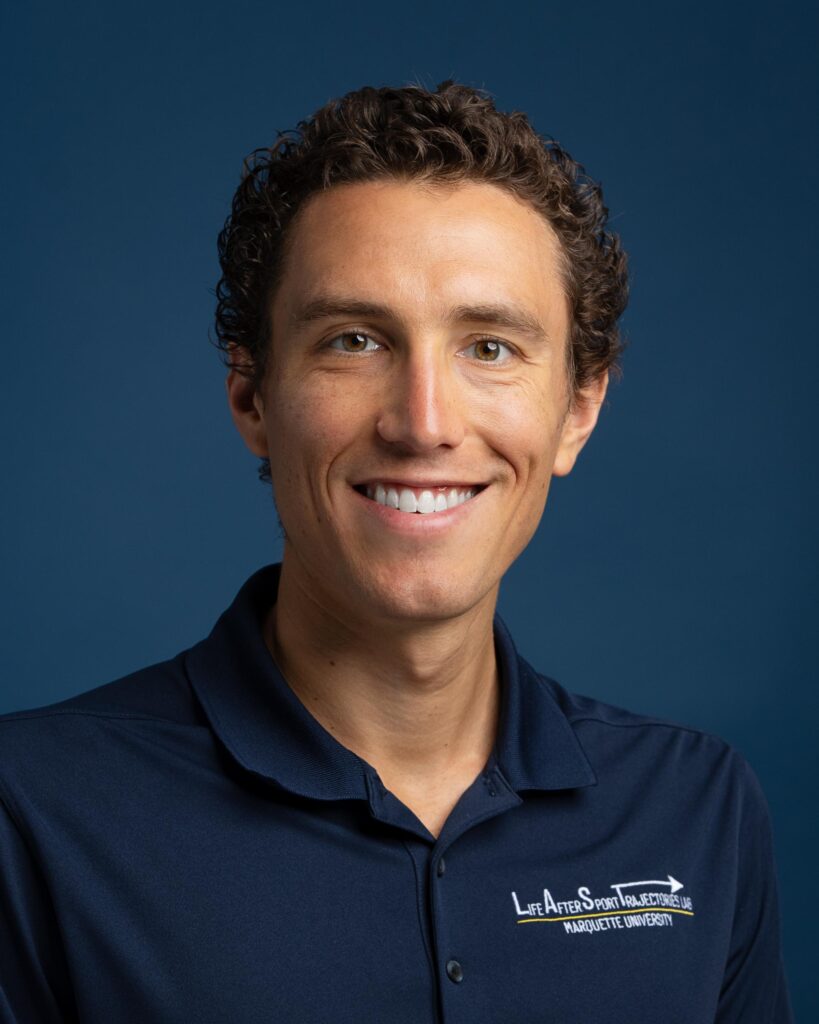
Dr. Jacob Capin, PT, DPT, PhD, MS
Associate professor, Department of Physical Therapy
Director of the Life After Sport Trajectories (LAST) Laboratory
College of Health Sciences
Teaching at Marquette since Fall 2021
What led you to teaching as your career or part of it?
I completed a dual-degree training program to become a clinician-scientist by pursuing a Doctor of Physical Therapy (clinical degree) and a Ph.D. in Biomechanics and Movement Science (research degree). While I went into graduate school thinking that I wanted my career to be split primarily between clinical practice and research, many fantastic professors inspired me to teach.
I often think of the profound impact educators can have. As a professor in Marquette’s Doctor of Physical Therapy program, I am privileged to teach approximately 70 future physical therapists in each class. Over my career, I may teach a few thousand physical therapists, most of whom will treat hundreds of patients each year.
Estimating 40 years teaching x 70 students/year x 100 patients/year (per student) x 40-year careers (per student) yields 11.2 million patients who could be impacted! Accounting for my own research or students who go on to teach or conduct research themselves, that number would be even higher. It’s staggering!
What do you hope students learn from your teaching?
I hope students appreciate the complexity of how we learn things and that rigorous research is the foundation for moving forward our profession and ultimately the world. Physical therapy students often joke that the answer is always “it depends.” While initially challenged by that response, they come to appreciate the uniqueness of each patient and situation as they gain clinical experience. I hope my students learn to achieve the patient’s goals through evidenced-based practice and a Marquette-minded mission.
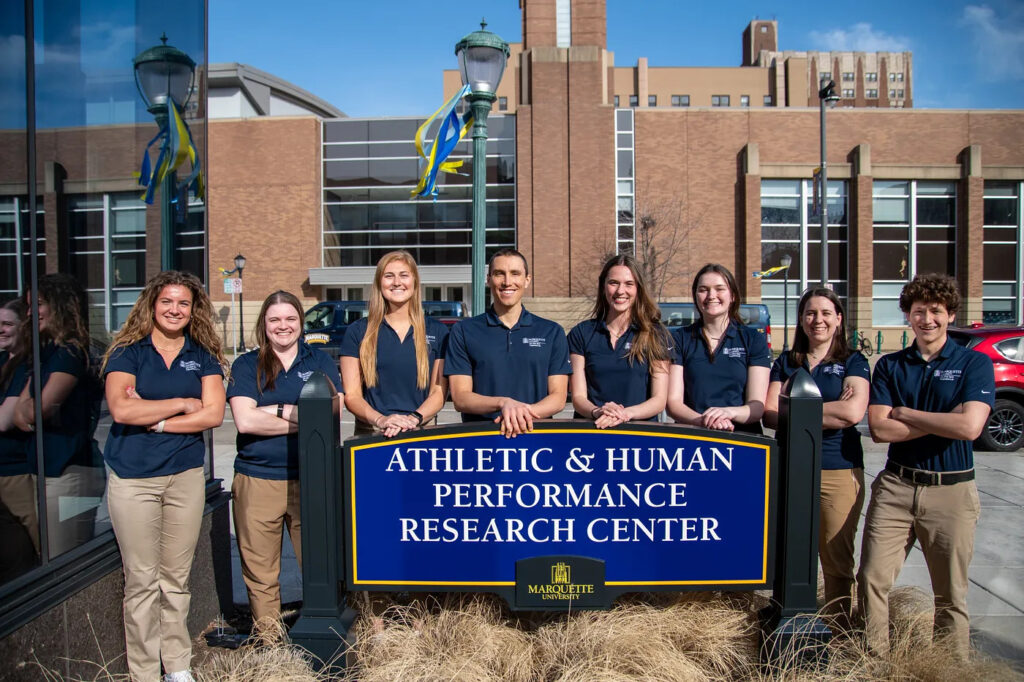
What advice would you give anyone else wanting to enter teaching in your field?
I often speak with students and practicing clinicians considering teaching as part or most of their career trajectory, and I absolutely love those conversations! Besides encouraging them to speak with many others in addition to me to garner different perspectives, I ask about their professional goals and dream positions. Many people think they need to get a Ph.D. to teach — and, while scholars with Ph.D.s often do teach, there are also other pathways. I encourage those whose primary aim is to teach to consider an Ed.D. (doctorate in education), rather than a Ph.D. (research-focused degree). I also encourage physical therapists and other healthcare providers to consider such alternative routes into teaching as getting advanced clinical training (e.g., residency training), serving as a laboratory instructor or guest lecturer, or taking on students as a clinical instructor or mentor. These are only a few of the many avenues to teach! And, yes, if you are reading this and interested in teaching, research, academia and/or the health professions, please reach out!
Please share a memorable teaching or learning experience you’ve had.
One of my most memorable teaching experiences came in spring 2023 through an exhibit that the Haggerty Art Museum curated for my kinesiology course. I had the privilege of not only sharing the exhibit with my Doctor of Physical Therapy students, but also giving a guest presentation to Dr. Melissa Shew’s Philosophy 1001 course. During that conversation with Dr. Shew, Museum Curator Lynne Shumow, and the philosophy students, I shared my personal journey of becoming a clinician-scientist and professor. I also shared how physical therapists can profoundly impact their patients’ lives through considering their goals, unique sociocultural experiences and more.
The students — mostly freshmen, many still pondering their long-term career goals — asked highly insightful questions. I later heard that some commented that the talk was like a TedTalk, which absolutely delighted me. Overall, it was a great reminder of why we do what we do.
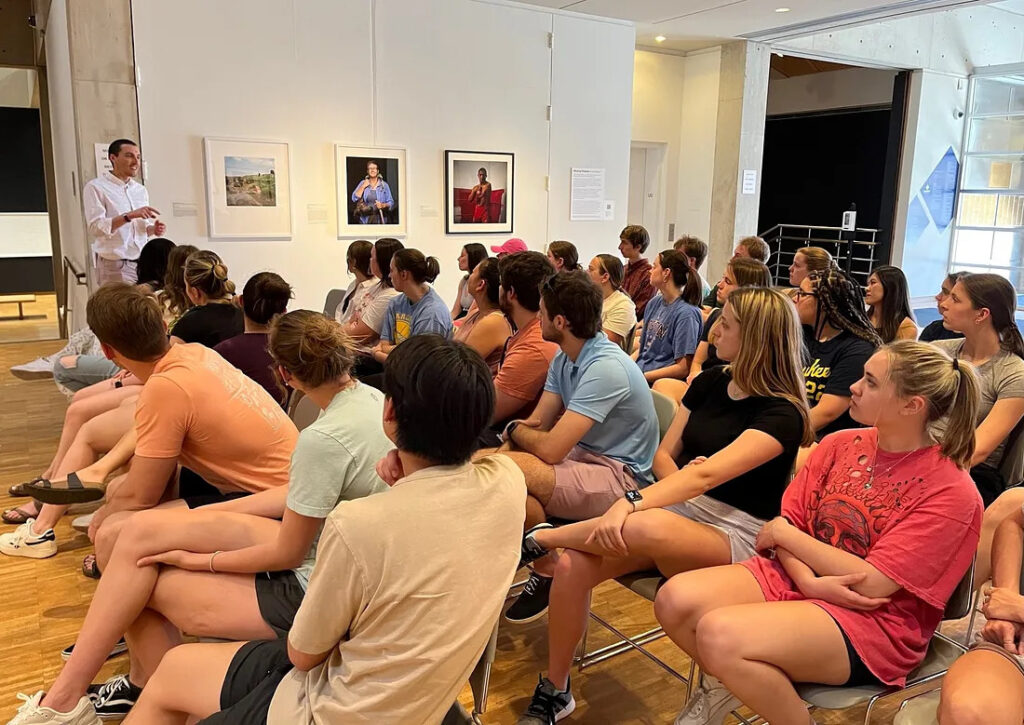
Who is an educator at Marquette that you admire, and why?
I have so many colleagues who are outstanding teachers! I first want to recognize Dr. Don Neumann, who taught at Marquette for 35 years and wrote the textbook used in my course and around the world. He is revered and loved and is a tremendous and passionate mentor.
I also greatly admire my laboratory assistants, Tony Hornung and Jeremy Karman. Their knowledge, experience and passion inspire our students and me.
Finally, my many fantastic colleagues graciously allow me to observe their classes, lending a helping hand or word of encouragement. I am deeply grateful for their unwavering commitment to our students and profession!
Please share a favorite quote about teaching and learning.
My 12th-grade English teacher, Dr. Ronald Flowe, said, “No one rose to meet low expectations.” We can empower others by setting high expectations for and believing in them. People often achieve things that others think is impossible simply, or at least in part, because they believe they can; in the words of Henry Ford, “Whether you believe you can or believe you can’t, you’re (probably) right.”
Following the first assessment, I often share a quote by Winston Churchill: “Success is not final. Failure is not fatal. It is the courage to continue that counts.” This quote reminds me that learning is an ongoing process and encourages the learner to continue courageously whether their first test goes very well or is a First Attempt In Learning (FAIL).
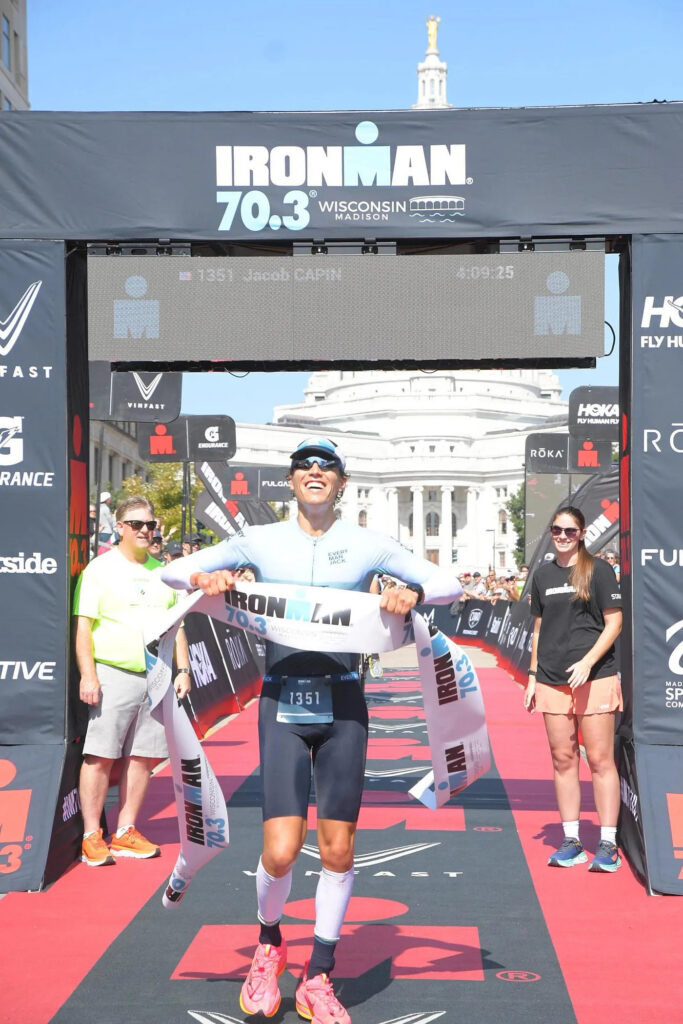
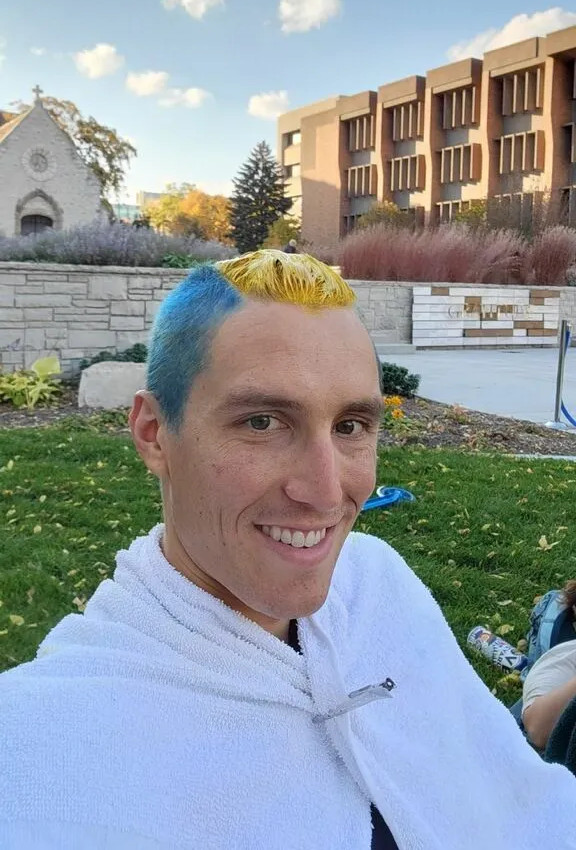
When do you feel like or know that you’ve succeeded as an educator?
Lightbulb moments, like when a student’s eyes light up because they “get” a concept with which they have been struggling, always make my day!
Non-astonishing teaching tip time! Please share one favorite thing you do in class or with your students that you think everyone should try. Limit yourself to three sentences.
Be okay with “pregnant pauses” (silence), especially after you pose a question or share a key concept. Allow time for the idea to sink in and for students to generate a response or question.
If you would like to recommend someone you know (or yourself!) to be profiled in this series, email ctl@marquette.edu. Please provide a very brief description about the educator and/or why you think they should be highlighted. After consideration, the CTL will contact your nominee to start the interview process, which will entail the educator responding in writing briefly to different interview questions from a menu of choices.
